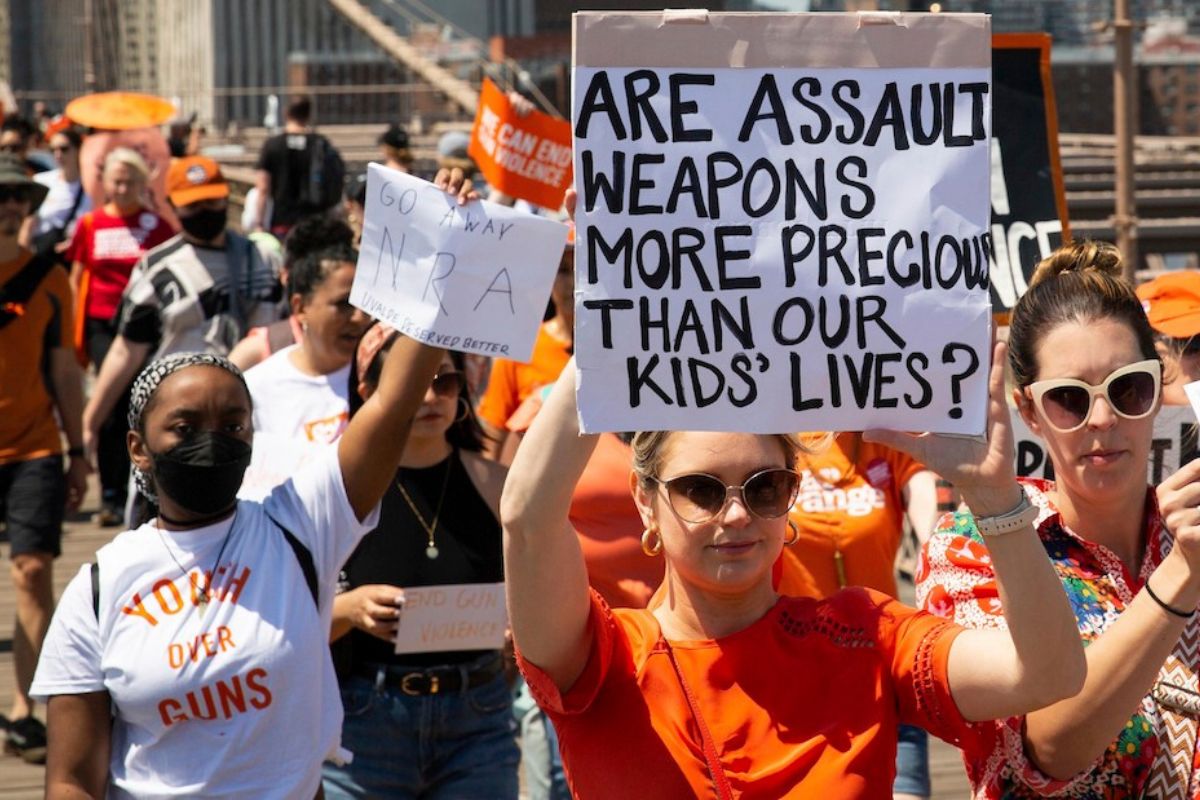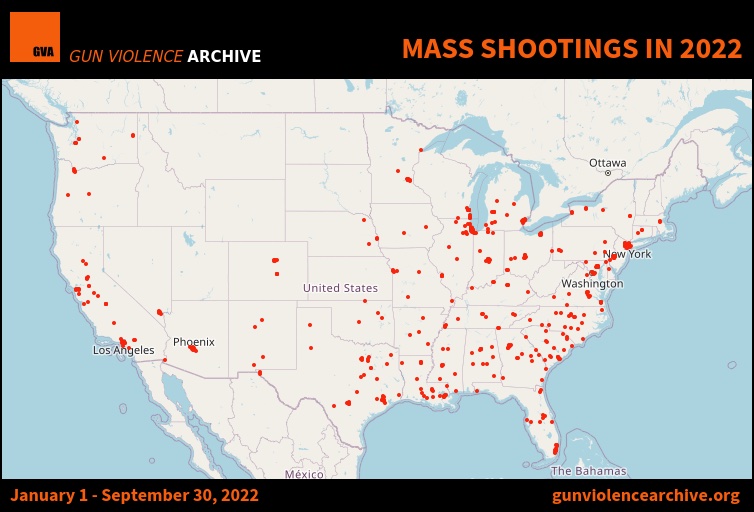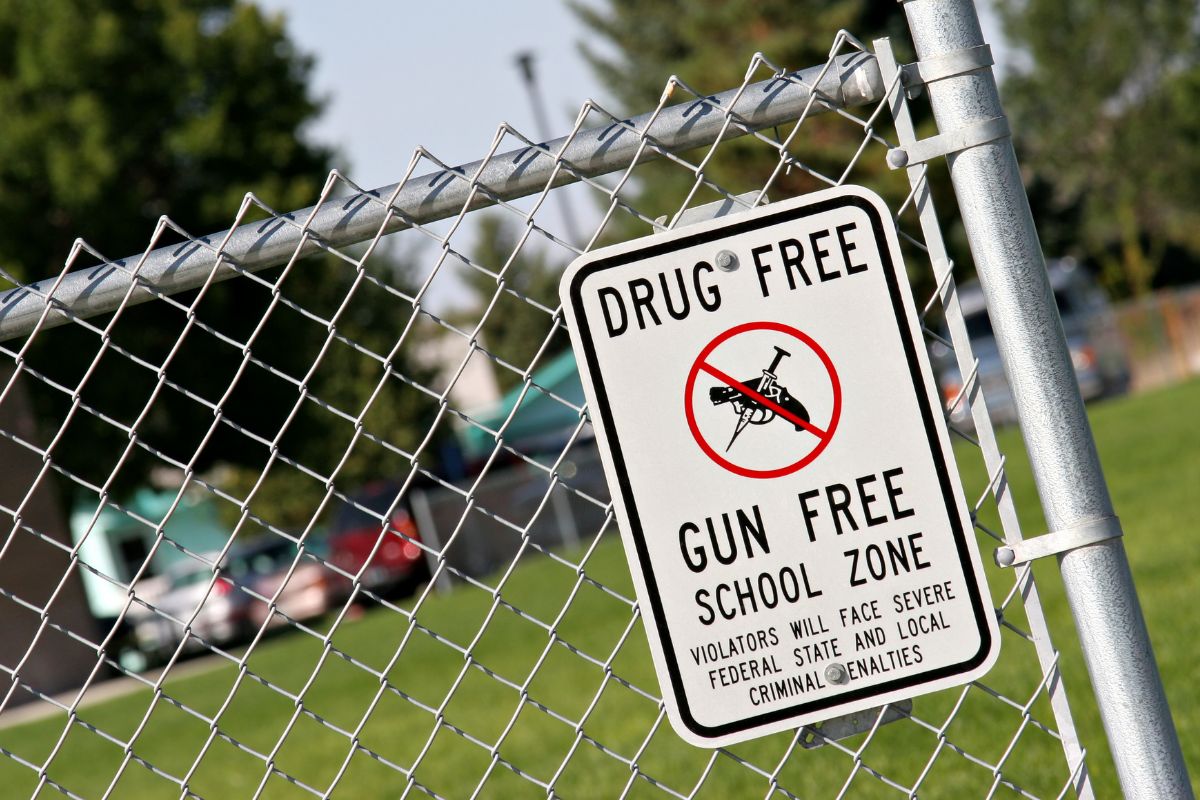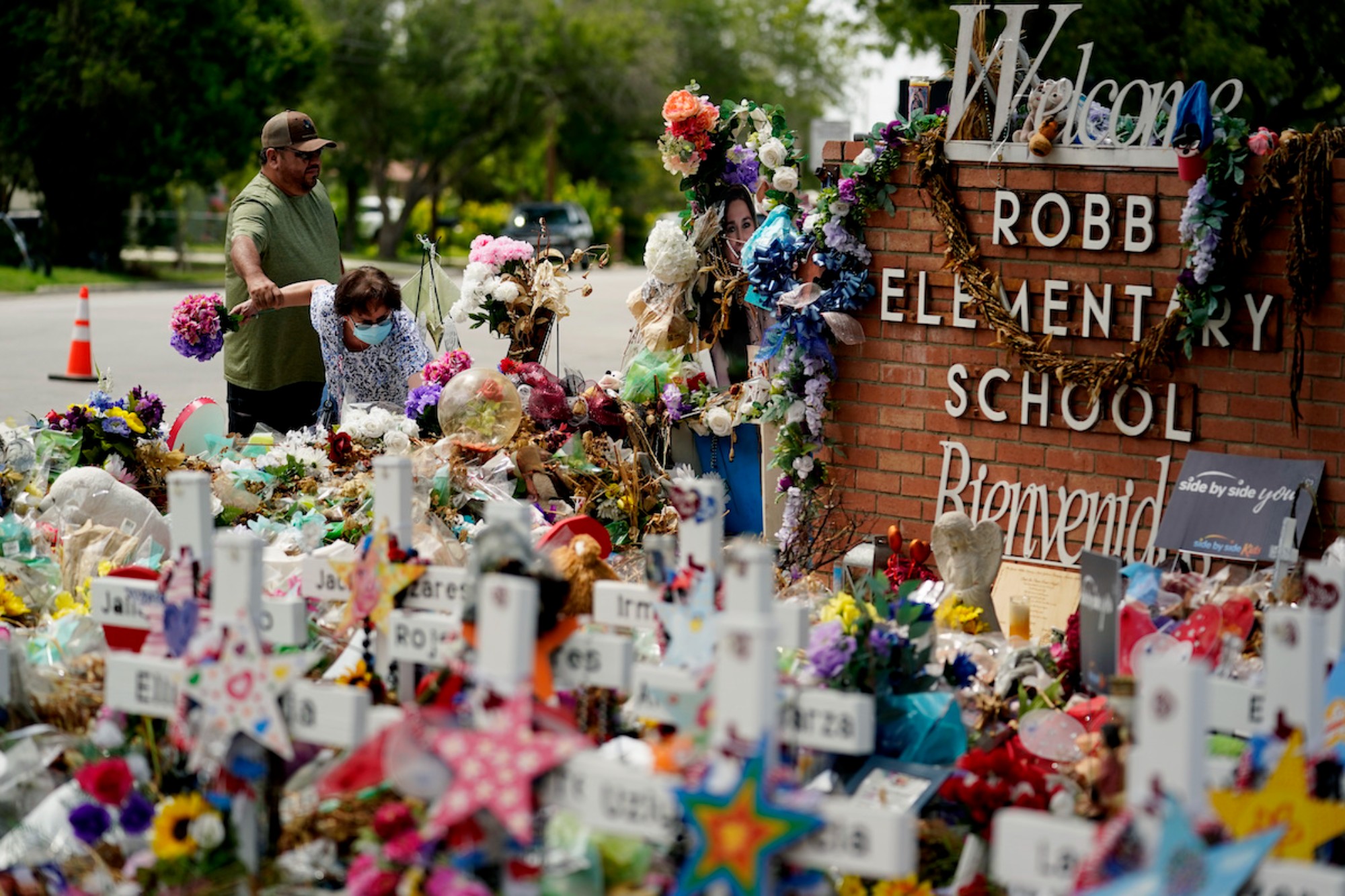[Editor's Note: The following facts were last updated at time of publication.]
Uvalde was just one of more than 35 school shootings thus far in 2022.

(Photo: AP Images)
While the shooting at Uvalde’s Robb Elementary School was the deadliest this year, 30 people have been killed and 79 people have been injured in school shootings in 2022 to date.

Mass shootings locations from Jan. 1, 2022 through Sept. 30, 2022. (Map courtesy of Gun Violence Archive)
According to the Gun Violence Archive, there have been more than 500 mass shootings in the United States this year.
However, there’s strong evidence to support that “specific measures could reduce horrific acts of gun violence,” wrote TC’s Louis Klarevas, Research Professor; Sonali Rajan, Associate Professor of Health Education; and Charles Branas, the Gelman Professor & Chair of Epidemiology at the Mailman Public School of Health, in The Los Angeles Times last May.

(Photos: TC Archives)
The scholars – who all examine gun violence as a public health issue – cite numerous “proactive” strategies with the potential to deter death and injury in American schools, supermarkets, streets, subways and other spaces, including:
- Bans on assault weapons and large-capacity magazines
- Permit-to-purchase laws, which require aspiring gun owners to be licensed and fingerprinted before obtaining a firearm
- Extreme risk protection orders, also referred to as “red flag laws”
- Restrictions on firearm availability to those younger than 21
- Safe storage and child-access-prevention laws
[Read more about these recommended provisions and the supporting data here.]
TC Take Action: Stand Up to Prevent Gun Violence
“Gun violence is a solvable problem, but there is not one single solution,” Rajan said last spring in an interview with NY1. “So, the reliance on one specific policy or one particular term – we hear a lot about control – is not enough.”
The evidence, Rajan says, points to “a multifaceted gun violence prevention strategy, which includes pro-social skills development, data-based behavioral threat assessment protocols along with increased federal and state funding for school counseling and psychological services, coupled with the implementation of specific gun laws.”
NY1 and Sonali Rajan
Rajan is currently co-leading a study supported by a major grant from the National Institutes of Health that seeks to identify the impact of over two dozen safety tactics and policies on gun violence in K-12 schools across the U.S with novel data from more than 600 K-12 public schools. With Rajan and Branas serving as Principal Investigators, the grant is among the first to address the wide-ranging repercussions of gun deaths and injuries since lawmakers curtailed federal spending on firearms research in the 1990s.

(Photo: iStock)
Rajan also recently coauthored a study in which she and colleagues found that Black children prior to the pandemic encountered gun violence at a rate 4.44 times higher than peers residing in non-Hispanic, white communities.
